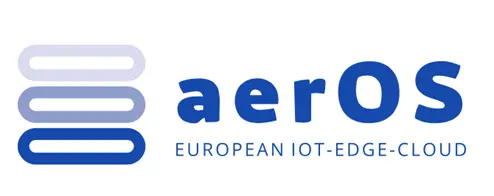aerOS - Autonomous, scalablE, tRustworthy, intelligent European meta Operating System for the IoT edge-cloud continuum
Website's ProjectaerOS - Autonomous, scalablE, tRustworthy, intelligent European meta Operating System for the IoT edge-cloud continuum
Website's Project
The project aerOS aims at transparently utilising the resources on the edge-to-cloud computing continuum for enabling applications in an effective manner, incorporating multiple services deployed on such a path.
Therefore, aerOS will establish the missing piece: a common meta operating system that follows a collaborative IoT-edge–cloud architecture, supporting flexible deployments (e.g., federated or hierarchical), bringing tremendous benefits as it enables the distribution of intelligence and computation – including Artificial Intelligence (AI), Machine Learning (ML), and big data analytics – to achieve an optimal solution while satisfying the given constraints.
The overarching goal of aerOS is to design and build a virtualized, platform-agnostic meta operating system for the IoT edge-cloud continuum.
As a solution, to be executed on any Infrastructure Element within the IoT edge-cloud continuum – hence, independent from underlying hardware and operating system(s) – aerOS will:
- deliver common virtualized services to enable orchestration, virtual communication (network-related programmable functions), and efficient support for frugal, explainable AI and creation of distributed data-driven applications;
- expose an API to be available anywhere and anytime (location-time independent), flexible, resilient and platform-agnostic; and
- include a set of infrastructural services and features addressing cybersecurity, trustworthiness and manageability.
aerOS will:
- use context-awareness to distribute software task (application) execution requests;
- support intelligence as close to the events as possible;
- support execution of services using “abstract resources” (e.g., virtual machines, containers) connected through a smart network infrastructure;
- allocate and orchestrate abstract resources, responsible for executing service chain(s);
- support for scalable data autonomy.
Selected Publications
Syed, D. A., Quadrini, W., Rahmani Choubeh, N., Pinzone, M., & Gusmeroli, S. (2024).
Approaching Interoperability and Data-Related Processing Issues in a Human-Centric Industrial Scenario. In International Summit on the Global Internet of Things and Edge Computing (pp. 21-34).
Cham: Springer Nature Switzerland.